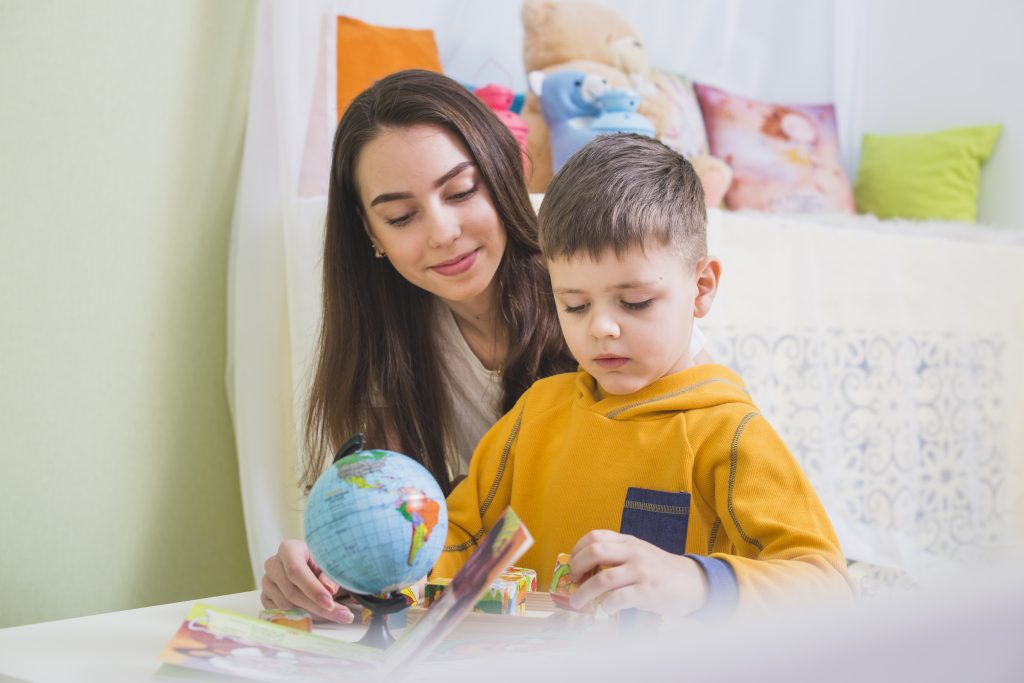Parenting
Nurturing Young Minds: A Guide to Educating Toddlers
Toddlers are eager learners, curious explorers, and sponges for knowledge. As parents or caregivers, it is both rewarding and challenging to nurture their growing minds during this crucial stage of development. Educating toddlers goes beyond formal instruction; it involves creating a stimulating and supportive environment that fosters their natural curiosity and love for learning. In this blog, we will explore effective strategies to educate toddlers and lay a strong foundation for their lifelong learning journey.
Encourage Play-Based Learning:
Play is the most natural and enjoyable way for toddlers to learn and make sense of the world around them. Provide open-ended toys, building blocks, puzzles, and art materials that encourage creativity and problem-solving. Engage in imaginative play with them, which fosters language development and social skills.
Read, Read, and Read:
Reading to toddlers is an invaluable way to introduce them to language, vocabulary, and storytelling. Choose age-appropriate books with vibrant illustrations and simple narratives. Make reading a daily ritual and involve your child in the story by asking questions and encouraging them to predict what happens next.

Introduce Concepts through Everyday Activities:
Use everyday activities as opportunities for learning. Count stairs as you climb, identify shapes and colors during mealtime, and involve them in simple measuring and pouring while baking. These experiences build early math and science skills while making learning fun.
Foster Curiosity in Nature:
Take your toddler outdoors to explore nature. Observe birds, insects, flowers, and trees together. Encourage questions and curiosity about the natural world. Use these experiences to discuss basic concepts like seasons, weather, and plant growth.
Engage in Music and Movement:
Toddlers have a natural affinity for music and movement. Sing songs, play musical instruments, and dance together. Music enhances language development, rhythm, and coordination, while movement activities promote gross motor skills.

Limit Screen Time:
While technology can offer educational content, it is essential to limit screen time for toddlers. Instead of passive screen engagement, opt for interactive activities that promote hands-on learning and real-life experiences.
Cultivate Social Skills:
Toddlers learn through interactions with others. Arrange playdates and group activities that allow them to socialize with peers. Encourage sharing, taking turns, and resolving conflicts in a positive and supportive manner.
Be Patient and Flexible:
Educating toddlers requires patience and flexibility. Each child is unique and learns at their own pace. Be patient with their progress and provide gentle guidance and encouragement along the way.
Conclusion:
Educating toddlers is a delightful journey of discovery and growth. By providing a nurturing and stimulating environment, encouraging play-based learning, and reading together, you can lay a strong foundation for their future education. Engaging in everyday activities that introduce concepts, exploring nature, and fostering social skills will make learning a joyful experience for your little one. Remember to limit screen time and prioritize hands-on interactions that stimulate their young minds. Embrace the role of a facilitator in your child’s learning journey, and watch as their curiosity and love for learning flourish. Together, let’s unlock the full potential of these young minds and set them on a path of lifelong curiosity and knowledge.

